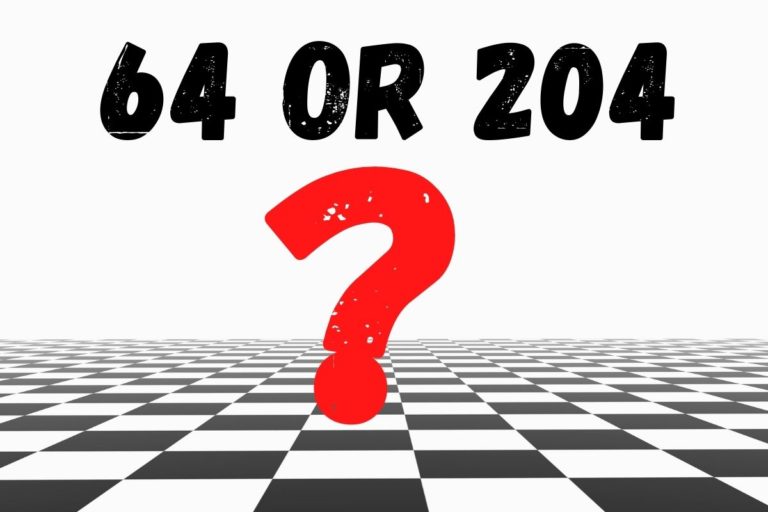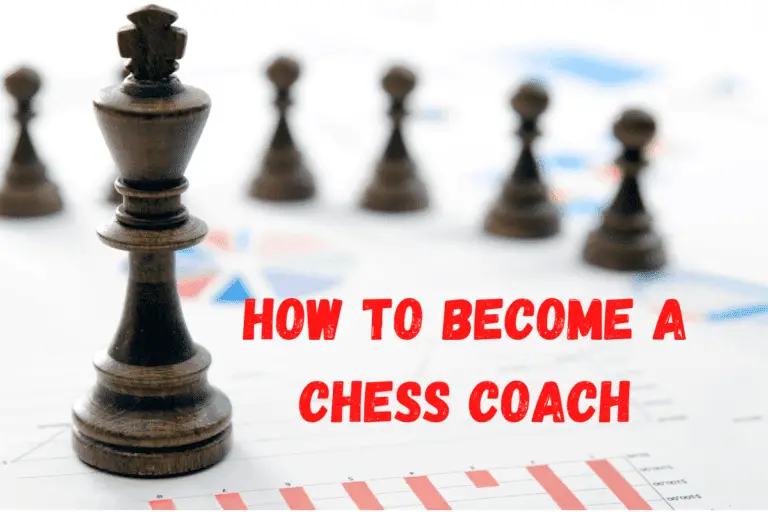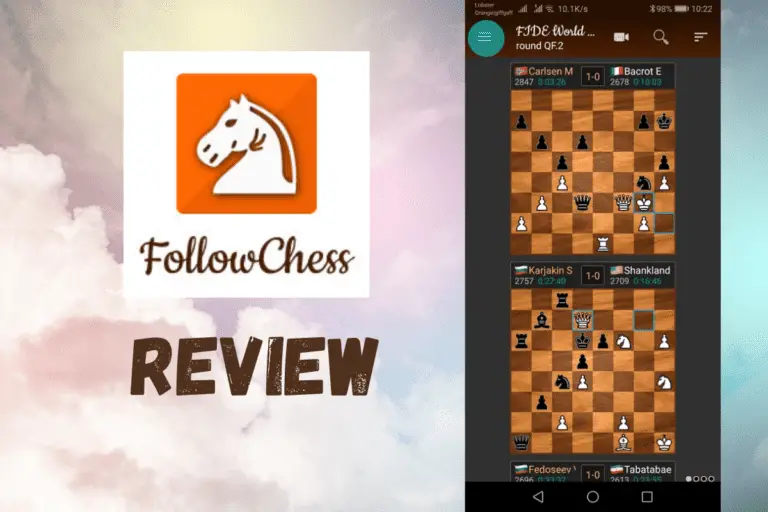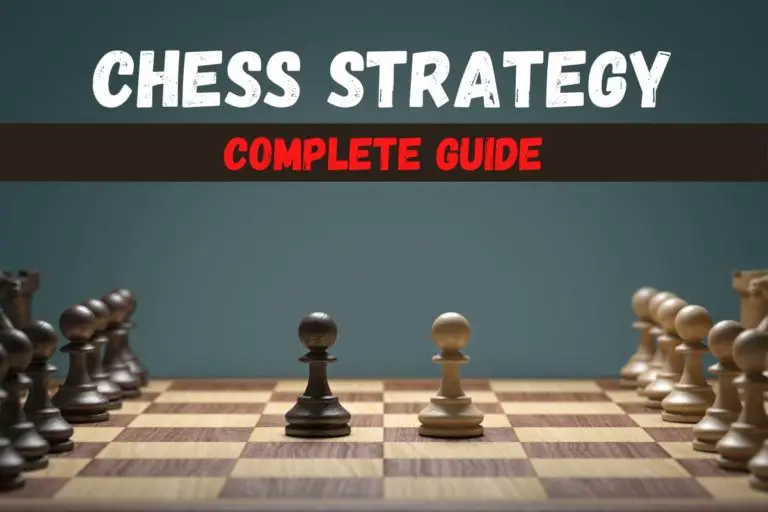When to Say Check in Chess and What Happens If You Forget
⭐⭐⭐ Take 5 minutes to read and improve your chess game ➡️ : This article was first published on, and is Copyright of Chessquestions.com
If you have played chess as a child or even on a casual basis since I am sure at some point or another, and probably every single time it happens, you have or your opponent has explained ‘Check!’ when the king has been placed in a mate position. Did you know it is not necessary to say check in chess?
Since there are no official rules in the laws of chess saying otherwise, there is no obligation to say ‘check’ in chess when directly attacking an opponent’s king. It is up to your opponent to notice the position and avoid check or make an illegal move which could lose them the game.
It throws a whole new light on the way you are thinking about the game and when you next get someone’s king in check right? Knowing you or they could lose the game by not seeing the threat and making an illegal move or even falling foul of the touch move rule is an interesting concept.
It is actually good practice to consider that your opponent may not say check. It means any time you are under considerable attack and, in particular your King, you will be looking very closely at the last move your opponent made. Making a double check is something you should get into the habit of doing for every single move they make.
Saying Check in Friendly Chess
It is most likely and perfectly acceptable to continue saying “check” in friendly games of chess. It is kind of expected and certainly accepted for the warning to go out.
If you go to a casual chess club or play someone regularly in informal games and you have always said check; if you think they will not be too upset if you stop, play a game, get them in check and say nothing.
See what their reaction is, or indeed if they even notice you have their king in check. It will be interesting to see their reaction, and either way, you can explain after that you´ve discovered saying check in chess is not necessary
Saying Check in Competitive Chess
It absolutely not necessary to say check in a real, tournament games.
Indeed in most cases, it would be rather frowned upon and could be construed as a distraction tactic and not warmly welcomed, possibly even reported and you could be warned for misconduct.
There really should be no talking between players in a game of chess with the exception of offering a draw and then the acceptance or refusal. Indeed, when refusing, the loudest you can shout no is by making another move immediately.
It only happens over the board [OTB]
It should be pointed out that you will only come across this in OTB games. That is, and to explain the abbreviation, in ‘over the board’ games.
When playing chess online or on an app, there is often a notification, or at least you’ll not be able to miss the fact you have been placed in check because it will not allow you to make any illegal move and you will have to get out of check to continue the game.
Illegal move after Check
It is more than possible if you have always been used to your opponent saying check that if you come up against someone who doesn’t say it, you may miss the fact they have put you in check and go to make a move that does not either block the check or move the king.
In games at the highest level, this would happen maybe once in a lifetime. No top-level chess player will be getting into a position where check is possible from the opponent, let alone missed when it does happen, regardless of warning or not.
At an intermediate level or in a chess tournament, the rules are the rules and an illegal move can forfeit the game. Local, tournament, or club rules may make exceptions to the standard rules, but do not rely on it. And accept any adjudicator’s decision.
Friendly games – It would be polite at this level to point out to your opponent has missed the fact they were in check and failed to rectify the situation by blocking or moving the king, if available.
It is up to you as a pair as to what you decide to do.
Often it is pointed out and let go and the player who made the illegal move can replace the pieces and go again.
Do you say Checkmate?
Again, there is no rule in the laws of chess that dictate that checkmate should be said.
And again, once at a certain level, it might be taken as offensive to have your victor rub salt in the wounds with an outspoken checkmate when it lands.
At the highest level of chess, it is rare to see a checkmate anyway
If you are playing friendly chess with, family, friends, or casual chess partner, go ahead, say it as loud as you like – no one will hit you with a stick for it – hopefully!
Do you win if you don’t say Checkmate?
If you have made perfectly legal moves to progress to a position whereby you place your opponent in checkmate and defeat them, you do not lose the game for not saying it, so don’t worry.
If they come back at you, and say you didn’t win because you didn’t say it, grab your mobile phone, find the FIDE rules, and ask them to find where it states that you have to say checkmate – They won’t find it
Better still, add this to your favorites and show them this article, it will be quicker.
When CAN you say Check in Chess
Teaching is a good time to say check in chess. It will help the student understand what has happened as you explain how they found themselves in that position.
You may even encourage your student to say it, to begin with, just so you can ascertain if they are even aware they may have put you in check. It is not unfathomable that they may be so focussed on a capture that they miss they have also achieved a check position in a game.
Do you Say ´Check´on the Queen?
You do not say check on the queen in chess, however, there used to be a less used utterance of ‘garde’ when placing the queen under direct attack. You will rarely if ever, hear it used these days and it has become almost obsolete. Saying ‘queen-check’ is not practiced or contained in any rules of chess.
So you can take it from the progression of this article, that you can not check any other chess piece but the enemy king, and at no point in formal games should it be said, you’ll never catch Magnus Carlsen saying it, that’s for sure.
Summary Round Up
So, if you are playing a real competition, or a semi-competitive round chess game, do not say check – when playing casual games with family or friends or at beginner level over the chessboard, do what you both agree on. When teaching someone chess, definitely point the occurrence out, but also explain to them this ‘non-rule’ so that they know early on in their learning.






